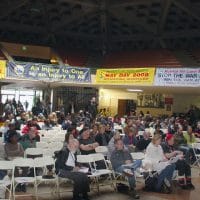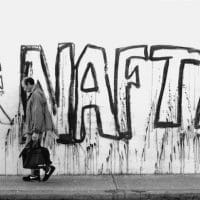-
What is social reproduction theory?
In this short video, Tithi Bhattacharya, editor of ‘Social Reproduction Theory’ (Pluto, 2017), discusses ‘SRT’, and the question of who produces the worker under capitalism?
-
Latin America: 200 years of the infernal cycle of debt
Venezuela is an emblematic case of the infernal cycle that Latin America has been struggling with over the last two centuries. It all began in 1810, when Simon Bolivar, a figurehead of the Spanish colonies in their fight for freedom, began borrowing from London in very unfavourable conditions to finance the wars of independence.
-
Karl Marx “returns” to Germany as 200th birth anniversary approaches
In the fatherland of Karl Marx, the question begs itself: is his Das Kapital still up to date? Over two thirds of respondents voted for “Yes, it is more up to date than ever before.”
-
Social reproduction theory: What’s the big idea?
Key to social reproduction theory (SRT) is an understanding of the ‘production of goods and services and the production of life are part of one integrated process’, or in other words: acknowledging that race and gender oppression occur capitalistically.
In this article, Susan Ferguson, a contributor to Social Reproduction Theory, shows how SRT can deepen our understanding of everyday life under capitalism. She explores the history of this dialectical approach, its variances, and its potentialities; providing an answer to the question: social reproduction theory, what’s the big idea? -
U.S. government commission’s plan to repeal net neutrality will hit marginalized communities hardest
The Federal Communications Commission (FCC) of the United States—an independent government agency that regulates interstate communications by radio, television, wire, satellite, and cable—emitted a preliminary proposal on Tuesday that seeks to repeal “net neutrality”.
-
The precariat under rentier capitalism
The Precariat under Rentier Capitalism Guy Standing We are in the midst of a Global Transformation, analogous to Karl Polanyi’s Great Transformation described in his seminal 1944 book. Whereas Polanyi’s Transformation was about constructing national market systems, today’s is about the painful construction of a global market system. To use Polanyi’s term, the ‘dis-embedded’ phase has been dominated by an ideology of market liberalisation, commodification and privatisation, orchestrated by financial interests, as in his model. The similarities also extend to today’s fundamental challenge, how to construct a ‘re-embedded’ phase, with new systems of regulation, distribution and social protection.
-
Mugabe, Land, Thatcher, Blair & imperialism
So, farewell then, Robert Mugabe, ruler of Zimbabwe for 37 years. As the western media celebrate your demise, and Zimbabwe’s people wonder what will happen next, it is worth making a note of some forgotten events that helped pave the way for your country’s crisis. As one might expect, this involves the Brits.
-
Obituary: István Mészáros, hungarian Marxist political philosopher who taught at St Andrews
István Mészáros, Marxist political philosopher. Born: Budapest on 19 December 1930. Died: Kent on 1 October 2017.
-
The FCC’s plan to end Net Neutrality: What you need to know
The details of FCC Chairman Ajit Pai’s plan to destroy Net Neutrality are out. And they’re even worse than expected. Our lawyers and policy experts are reviewing the reports and gathering details about Pai’s plan. This is our first read on the most important details you need to know about this proposal. We will update this post as new details emerge.
-
Venezuelan company lets 55 tons of flour rot
The company received more than US$85 million in government subsidies in 2015 for the production and distribution of food at fair prices.
-
Not with a bang but with a (prolonged) Whimper
It is probably obvious to everyone that global capitalism is in dire straits, notwithstanding the brave talking up of output recovery that now characterises almost every meeting of the international governing elite. Even so, discussions of the end of capitalism still typically seem overstated and futile, not least because those hoping and mobilising for bringing in an alternative system are everywhere so scattered, weak and demoralised
-
Engels’ “theoretical moment”?
In Marx and Engels’ Collected Works volume 47, I found a very interesting letter written by Engels to August Bebel. It was written about a month and half after Marx’s death, April 30 1883. Bebel seems to have suggested Engels to move somewhere else in Europe. Engels’ justifications to continue staying in England is quite remarkable.
-
NUMSA condemns the military coup in Zimbabwe
Pressed by the military forces, the president of Zimbabwe, Robert Mugabe, has finally resigned from his seat after 37 years in power. Although his resignation was celebrated by many, the National Union of Metalworkers of South Africa warns that nothing good ever came from a military coup in Africa.
-
Tackling Britain’s private debt crisis
As of July 2017, the Bank of England measured the stock of private debt held by individuals at £1.548 trillion; making household sector indebtedness one of the biggest problems facing the United Kingdom’s economy and society. There is growing public policy concern over the historically unprecedented level of household debt but little by way of proposed solutions to deal with it.
-
Against legal fetishism (part two)
Couching Trump as a “lawless” autocrat-in-the-making has become a matter of routine, something of a mantra repeated by “liberals” and “conservatives” alike. The trouble with this characterization is not that it is inaccurate, but rather that it is incomplete.
-
Against legal fetishism (part one)
Law here, law there, law everywhere. The first nine months of the Trump administration have thrust questions about the force of law, legal strategy and tactics, and the role of judges in the United States’ much-vaunted system of constitutional checks and balances to the fore of public attention.
-
Where has all the surplus gone?
Thanks to the release of the so-called Paradise Papers, and the additional research conducted by Gabriel Zucman, Thomas Tørsløv, and Ludvig Wier, we know that a large share of the surplus captured by corporations is artificially shifted to tax havens all over the world.
-
Political economy of labour repression in the United States
Why is the book called “Political Economy of Labor Repression in the United States”, and not the “History of Labor Repression in the United States”? Considering it is a rather comprehensive survey of labour history in the US, how do you explain your choice of the title?
-
Just say no to NAFTA
The North American Free Trade Agreement (NAFTA) is unpopular with many working people in the United States, who correctly blame it for encouraging capital flight, job losses, deindustrialization, and wage suppression.

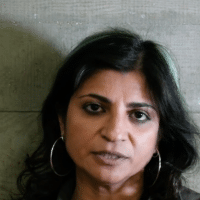
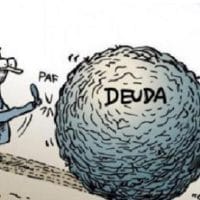



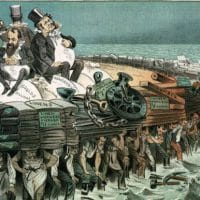





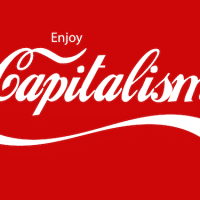
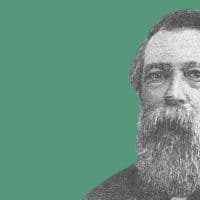
![[Archive photo] The National Union of Metalworkers of South Africa (NUMSA) Picture: Reuters](https://mronline.org/wp-content/uploads/2017/11/Numsa-pic-supplied-200x200.png)




